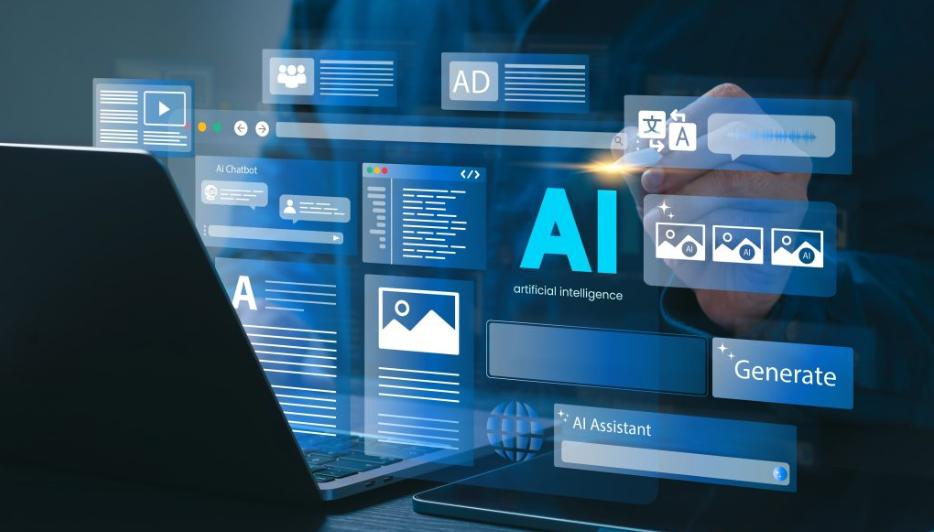
Ai is fundamentally changing the way businesses operate, driving automation and improving efficiency across a range of industries, including manufacturing, warehousing and retail. In the buzz around generative AI, some companies seem to overlook the long history of AI, with the field's origins dating back to the 1950s and a major milestone occurring almost every decade.
First, a decade ago, AI was still mostly experimental, with researchers and companies exploring systems that could surpass human intelligence. Today, with the introduction of generative AI technologies like ChatGPT, GitHub Copilot, Sora, and Midjourney, AI has become a focal point of industry discussion. More and more companies are using these tools to improve efficiency and effectiveness. At a time when companies are under pressure from shrinking budgets, heightened security concerns, and returns on investment, there is little time to pay attention to the hype. Therefore, business leaders must focus on the practical issues of quantifiable productivity improvements, process optimization, workforce allocation, cost control and revenue growth.
At the same time, AI is also driving the digitalization process in the Asia-Pacific region. According to research, 83% of Asia-Pacific executives rank generative AI as one of their top three business priorities in 2024, and separate data shows that spending on generative AI in the region is expected to grow by 140%, outpacing other regions. However, 93% of executives are aware of barriers to the introduction of generative AI in their business, and only 6% have policies in place to ensure the responsible use of AI. In manufacturing, AI is seen as key to driving significant business growth, with advances in machine vision, in particular, improving the analytics, accuracy, compliance and quality of production processes, providing engineers with new tools to increase productivity. These advances are not just hype around AI, but reflect its actual value across various industries.
In addition, companies can use training to unlock the potential of AI. Deep learning neural networks are a powerful AI tool, and despite their disruptive potential, they also have limitations. To fully harness AI's capabilities, businesses need to invest resources in training their AI models and employees. Setting reasonable expectations and a comprehensive training program will help teams better leverage AI's capabilities. In addition, proper evaluation metrics are critical to monitoring performance and ensuring that AI systems generate real value. To make effective use of AI, enterprises also need to overcome multiple data challenges, such as insufficient samples, unbalanced data, and inconsistent labeling. At the same time, external factors that affect data quality must be carefully managed to ensure the proper functioning of deep learning solutions.
Finally, on how to transform AI from hype to reality, governments in the Asia-Pacific region should work together to create a good environment for the development and application of AI. By establishing regulatory frameworks (such as Singapore's generative AI governance framework), promoting ethical standards, and investing in innovation, governments aim to harness the full potential of AI while addressing the associated risks and challenges. In this changing environment, businesses need guidance to cut through the hype and ensure AI brings real value to their operations. These efforts will give new impetus to the partnerships and technologies needed to enable digital factories and smart manufacturing operations. By automating workflows, empowering employees, and leveraging predictive and prescriptive analytics, organizations can dramatically increase efficiency and innovation.
In summary, in the face of the current rapidly developing manufacturing landscape, business leaders must go beyond the hot debate and focus on how to achieve the positive impact of artificial intelligence in reality. The future of AI lies in its strategic applications, and companies should focus on real impact rather than hype. As AI technology continues to evolve, those companies that invest in proper training, responsible use, and data management will have the best chance of unlocking its full potential. By empowering employees, automating processes and embracing innovation, AI will drive efficiency and sustainability across industries. Those companies that thoughtfully integrate AI into their operations today will be leaders in the business space of the future.

The United States announced on Monday its commitment to provide 1.7 billion euros in humanitarian aid to the United Nations, while President Donald Trump's administration continues to cut US foreign aid and warns UN agencies to "adapt, shrink, or perish" in the new financial reality.
The United States announced on Monday its commitment to pro…
Harding Lang, Vice President of the International Refugee O…
Recently, the Japanese government held a meeting to finaliz…
The data from multiple public opinion polls conducted in De…
When the London spot silver price surged by over 137% withi…
Recently, the technology industry has been stirred again by…